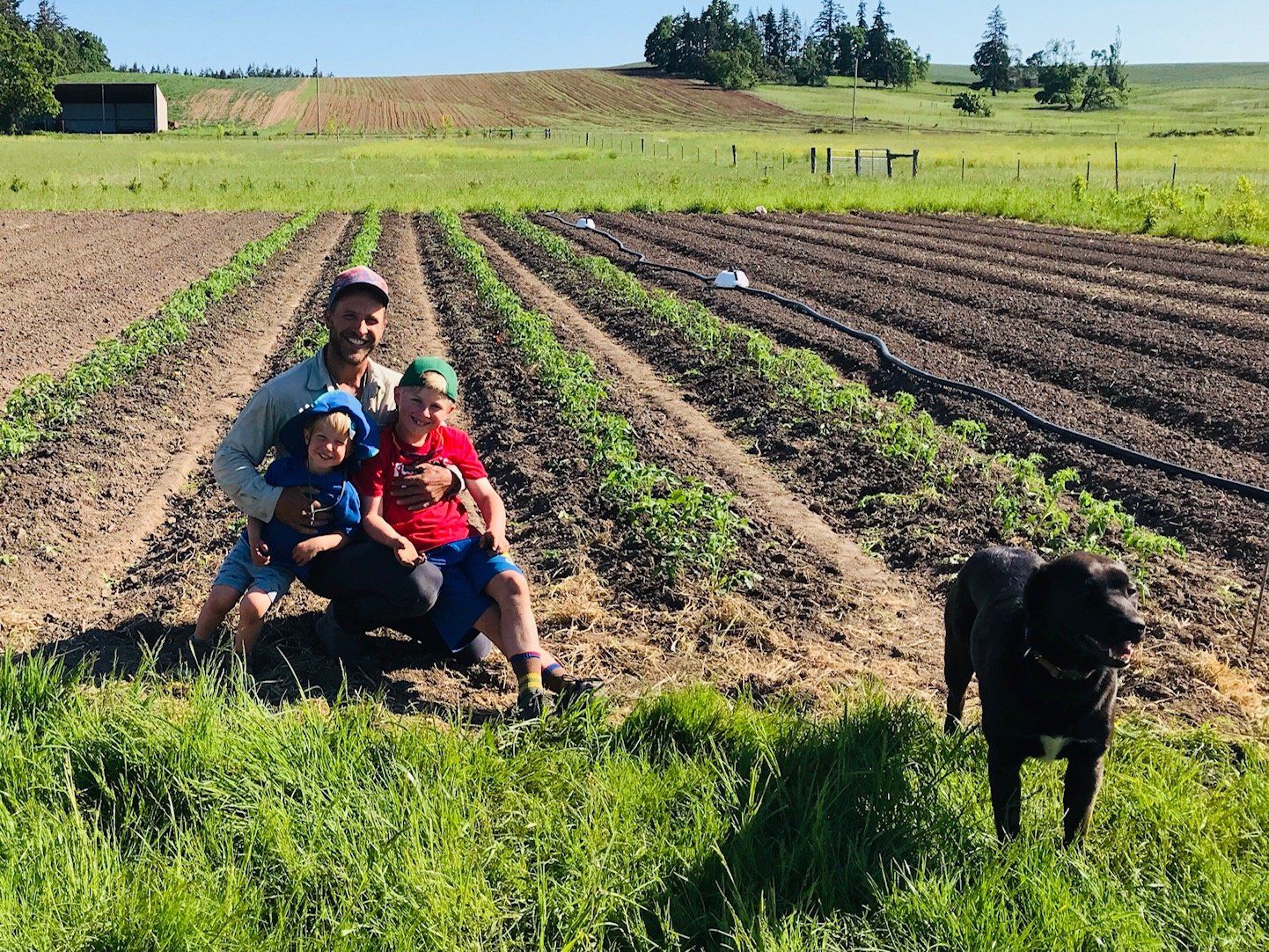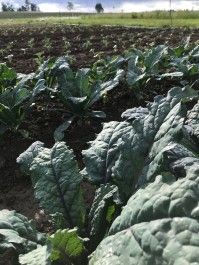Hey Friends!
This past week the crew was required to endure me saying over and over again, "I think we're turning the corner on Spring!". This was less of an empirical observation than it was completely wishful thinking - like if I said it often enough and loud enough, it would be true. The farm is always so beautiful and lush this time of year. The grass is healthy, all of the early Spring beds are in full production, and patches of cover crop are blooming and buzzing. We are in peak greens, edible and otherwise.
It's also the time of year that we are racing to get the last of the soil prepped and amended for summer field crops (peppers, tomatoes, corn, beans, squash). While we gear up for these luscious Spring harvests our attention is still required in the fields to "turn the corner on the season" (as they say) and to take care of all that's already been planted out.
Right now, honestly, it feels mostly in hand. The crew is kicking butt on the cultivation game. There's not a weed that's safe out there, and that's how we like it. BUT, we're also staring down a couple long weeks of planting and trellising and from what I can see of the forecast, plenty of irrigation. This means pulling headers and cleaning lines, and pulling drip lines, and setting up valves and filters, and fixing leaks. When it's just a couple early Spring blocks (about 60, 100' beds initially, before Mid May), the irrigation is not a big deal. We can handle most of the watering with a few micro-sprinklers and some rain....BUT this Spring is a different animal altogether. Though beautiful (the pepper starts are thriving!), the latent groundwater is already dropping and our soils are cracking deep into the soil profile. This means that to transition ground from an actively growing cover crop (grains and legumes planted last fall to build organic matter and protect the soil) to a nice crumbly bed with good moisture, we have to water the ground.
Well, we don't have to, but we do, because we don't like dust. Dust is one of the expressions of sad soils. I've made dust. It doesn't feel good. Dust means that whatever tool we are using is pulverizing the soil into its finest, most simple parts, which are then carried by the wind and water away from our fields. Topsoil takes hundreds of years to develop, and only a season or two to destroy. We want those soil particles bound together in complex aggregates of organic matter, exudates (secretions) from soil microbial life, and mineral particles. The soil life that we depend on to grow healthy plants needs a home with food (organic matter) and water (life). Tillage still exists on this farm, and while we've succeeded in minimizing and eliminating tillage in parts of our field preparation process, we haven't completely cut the cord on the tractor and its powerful, time saving tools. In a Spring such as this, when the ground is dry for extended periods of time and there is very little moisture to be retained, it just means more irrigating and more work in order to minimize our deleterious impacts on the soil life and the soil texture.
We often think about the water required to just grow plants, but a dry Spring will help us remember that we need water to prepare for plants, and most importantly, to support the living, breathing biology of our land - from which all of this lovely bounty grows.
Long story short, I'm not sure we've turned any corners on the season quite yet, but so far (aside from the acres of downed trees from Icepocalypse and plenty of deferred mowing) the farm is looking and feeling good. There is food to eat and the fields are clean and bright and vibrant. The bird life this year is wonderful (though I'm worried about the lack of rain) and so far (knock on wood) the pest pressure has been manageable. This week I'll sow some Sudan Grass and Buckwheat for summer cover crops which will then go into late fall and overwinter production in July and August. Which is just around....the corner?
As always, thank you to the eaters out there who choose food from a farm like this one. One more note/request: please eat escarole. It's a hardy green in the chicory family, with incredible flavor and some bitter-sweetness. I feel it excels roasted or slightly sautéed and then braised. It's perhaps most famous as a silky smooth addition to bean soups and stews. So good! If you like that kinda thing: https://www.bonappetit.com/ingredient/escarole
To Expanding Vegetable Horizons,
Your Farmers,
Conner (+Sarah)



